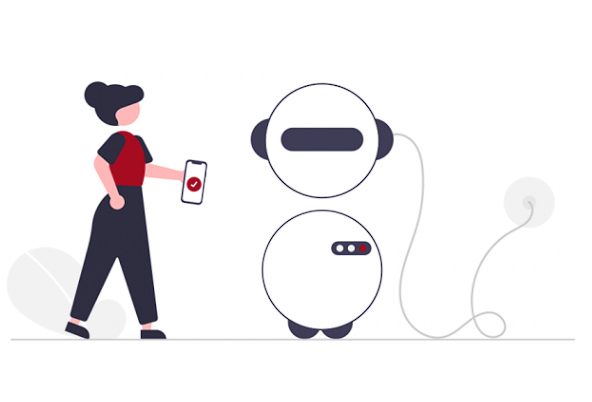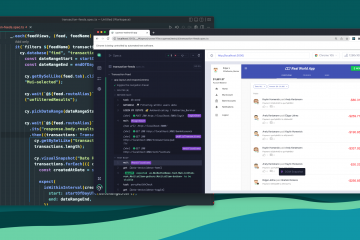Unleash the Potential of AI/ML for Performance Testing

- AI/ML data models are trained using a large amount of information, such as images, text, or numbers, which helps them recognize patterns and relationships.
- Once trained, AI/ML models can analyze new data and provide insights, recommendations, or perform specific tasks. They are capable of recognizing objects in images, understanding natural language, predicting future outcomes, or even controlling autonomous systems.
- Data models enable machines to mimic human intelligence and perform complex tasks that were once exclusive to human capabilities.
- A brief history of AI/ML
- Data
- Complexity of jobs
- Computation power required for analysis
- Real time responses required
- Creating test environments
- Conclusion
A brief history of AI/ML
AI and ML are fascinating fields within computer science that explore the capabilities of computers to learn and make decisions.
- One popular approach is supervised learning, where machines are trained using labeled data to recognize patterns and make accurate predictions. For example, Natural language processing (NLP) is a supervised learning technology. NLP helps computers understand and interact with human language, allowing them to comprehend and respond to text or speech inputs.
- In unsupervised learning, AI algorithms analyze vast amounts of unlabeled data to discover hidden patterns and structures. Deep learning, a subset of ML that can be unsupervised, involves training neural networks with multiple layers to solve complex problems. Speech recognition, which uses AI technologies, allows computers to understand and interpret spoken words. This has led to great improvements in voice assistants and other systems that can be controlled by voice commands.
AI research covers different areas, like computer vision. It’s all about teaching computers to understand and make sense of what they see in images or videos.
Be proactive to address these AI/ML challenges
Data
Machine learning models rely on processing increasingly large volumes of data to improve accuracy and efficiency. But this creates a problem for performance testing. It needs the right amount of data to imitate real-life situations.
Making sure the data is of good quality is important. AI and ML models get better at using good data and ignoring the bad.
Planning performance tests for systems like these becomes more complicated. When it comes to testing, there are several important factors to think about. These include the quantity and diversity of the data, any modifications that may be required, how the data is accessed, and the techniques used to create test data. And of course, data security and privacy are still important.
If you don’t test performance using good quality data, problems can arise. It may not fully test the code or generate enough load because there isn’t enough high-quality data available.
Complexity of jobs
New AI/ML models can be really complex. They have many layers, like deep neural networks. And many components like backend jobs, schedulers, processing queues, and web service hooks. This complexity affects performance testing as it becomes difficult to:
- Create test cases which test all the components of this system
- Identify the exact causes of performance bottlenecks or issues. Analyzing and optimizing the performance of complex models require specialized knowledge and tools.
Our team are experts at machine learning models and how to deal with complex cases. We excel at getting data ready for batch jobs, schedulers, and processing queues. We ensure that performance testing is conducted seamlessly and effectively throughout the entire funnel.
Computation power required for analysis
Machine learning models need a lot of computer power to handle big amounts of data and make quick decisions in artificial intelligence systems. This poses challenges like:
- Without the right expertise, it is easy to run into bottlenecks due to lack of computational resources or skyrocketing infrastructure costs due to over allocated resources.
- The system’s ability to handle more data, more users, or more complex tasks should also be tested by gradually increasing them.
- Complex tools to monitor and profile the infrastructure resources.
- Using cloud based resources, making choice of right instance types and sizes is another challenge.
- Performance optimization of algorithms is complex and can help in optimally using the infrastructure resources.
We specialize in understanding and developing autoscaling policies that offer real-time resource allocation for systems. We make sure to use computer resources in the best possible way. This helps prevent unnecessary costs while still keeping the performance of AI and ML operations at a high level.
Realtime responses required
Real-time responses are crucial in AI systems because they are designed to deliver intelligent decisions and login controls immediately. It’s really important to have response times below a millisecond. Even a small delay can seriously slow down the business process and defeat the whole point of using AI and ML.
This means we have to adjust and make everything in the system work its best, so it’s fast and efficient. That way, we can make decisions quickly and get things done fast – while making all the parts of the system work perfectly together.

Creating test environments
Setting up a test environment for performance testing in AI/ML is a major challenge. It’s complicated because you need good and valid test data, and there are many software components like batch jobs, processing queues, and external systems that interact with each other. On top of that, the infrastructure needs to be powerful to handle all the demands.
Creating a test environment for functional testing is usually easier when we have a small amount of data. However, things get more challenging when it comes to performance testing.
Our skilled DevOps team builds performance test environments daily. They have come to know best practices, ways to save money and configure the environments accurately and with efficiency.
Conclusion
At Total Performance Consulting, we work hard to give our clients exactly what they need. We bring together teams that are really good at solving tough problems and staying up-to-date with the latest technology. We focus on quality and bring in experts with the right skills. This allows us to give our clients the amazing results they want.
Need help with testing? Want to ensure your AI/ML system works quickly, reliably, and at scale? Contact us today to schedule a meeting.





0 Comments